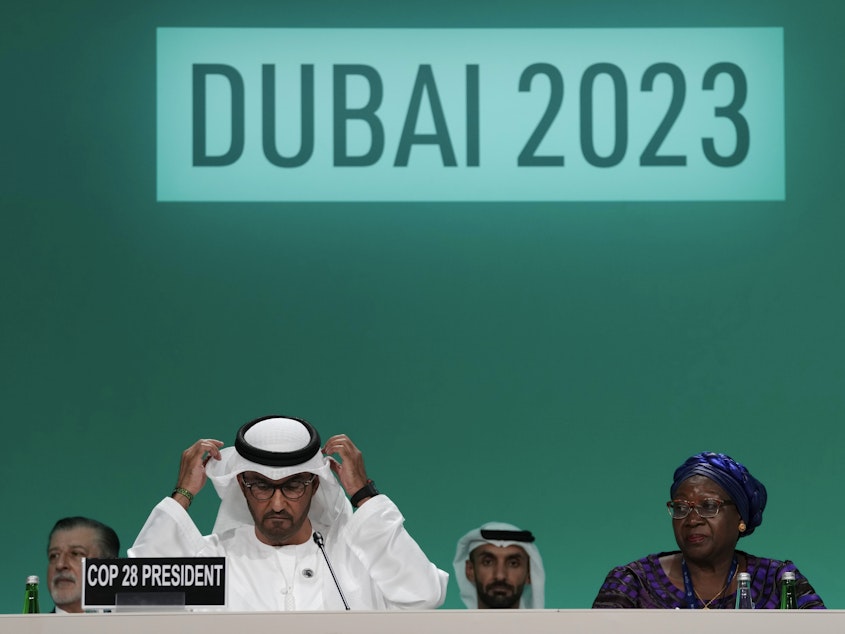Global climate talks begin in Dubai, with an oil executive in charge

The United Nations annual climate negotiations begin today in Dubai, with hundreds of world leaders expected to attend over the next two weeks.
The goal of the meeting is to make progress on reducing emissions of planet-warming gasses, and come to an agreement about how to pay for the enormous costs of a hotter planet.
One of the most controversial aspects of this year's talks is the person leading them. The petroleum-dependent host country, the United Arab Emirates, named the head of its main state oil company, Sultan al-Jaber, as the climate meeting's president. That has led to concerns among many climate experts and activists, who point out that humanity must stop burning fossil fuels to avoid catastrophic climate change.
Speaking at the opening ceremony, al-Jaber acknowledged that there may not be consensus among world leaders over whether, and how, to phase out oil, gas and coal, but he pledged to lead transparent talks. "We feel, as you feel, the urgency of this work," he said. "And we see, as you see, that the world has reached a crossroads."
This year's negotiations come at the close of the hottest year ever recorded on Earth. Extreme weather events, including floods, droughts, wildfires and heat waves, are increasingly deadly and disruptive.
"So many terrifying records were broken [in 2023]," said Simon Stiell, the head of the U.N. Framework Convention on Climate Change, at the negotiations' opening ceremony. "We are paying with people's lives and livelihoods."
Scientists warn that greenhouse gas pollution must plummet immediately in order to avoid catastrophic climate change effects, such as mass extinctions and runaway sea level rise by the end of this century.
Not all world leaders are attending this year's negotiations. President Biden will not travel to Dubai, although Vice President Kamala Harris did announce last-minute plans to attend, along with special climate envoy John Kerry.
Chinese president Xi Jinping will also skip this year's talks, although he is sending a delegation of high-level officials in his place. Earlier this month, Biden and Xi agreed to resume work on tackling climate change, after suspending official collaboration on the topic last year due to broader tensions between the two nations.
Even without their leaders present, the U.S. and China are expected to play major roles over the next two weeks. China is responsible for more emissions of carbon dioxide and other greenhouse gasses than any other country, and the vast majority of new coal-fired power plant construction is occurring there. Coal is the most intensely polluting of the major fuels, and must be basically eliminated in order to rein in warming, scientists say.
Another major topic on the table is whether the countries most responsible for causing climate change will follow through on promises to help the most vulnerable countries foot the bill for adapting to a hotter world. The United States is front-and-center in that debate: the U.S. has released the most cumulative planet-warming pollution into the atmosphere overall, going back to the mid-1800s. [Copyright 2023 NPR]
